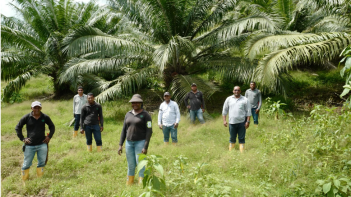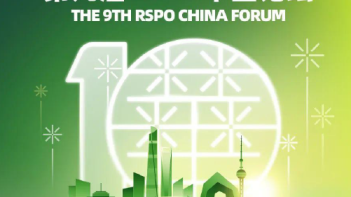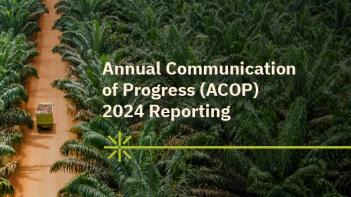The RSPO Management System Requirement and Guidance for Group Certification of Fresh Fruit Bunch (FFB) Production has been endorsed by the Board of Governors (BoG) at their recent meeting in March 2016.
In producing this document, RSPO Secretariat has applied the international best practices according to the ISEAL Code of Practices.
In approving the document, it was highlighted that the applicability of the Group Certification document will be as follows:
- Small growers below 50ha may use the document in full (all Section 1, 2 and 3)
- All other growers (i.e. above 50ha) may use the Group Certification System (only Section 1 and 2) BUT must demonstrate compliance to the full P&C standards (minus requirements for the mill) for Section 3 in order to get certified.
The (b) above is only a temporary measure as the RSPO Secretariat has been mandated by the BoG to conduct a study (on gap analysis) and advice the BoG if specific requirements/guidance for medium sized grower is needed.
The final draft the RSPO Management System Requirement and Guidance for Group Certification of FFB Production, which is accompanied with a Frequently Asked Question (FAQ), was endorsed by the BoG on 7th March 2016.
It will be effective immediately from the date of approval (with a 12 (twelve) month grace period).
This document shall serve as a generic document for all FFB producers, as far as certification of FFB production is concerned.
In accordance with standard procedures, all RSPO P&C National Interpretations will be required to use this document for the development of their smallholder guidance. For existing NIs, a revision of the NI smallholder guidance is expected within 12 months from the date of endorsement of this document. Hence, all group certification for smallholders issued between 8th March 2016 and 7th March 2017 may continue to refer to the existing country NI for the smallholders guidance, where applicable.
RSPO producer members seeking RSPO certification on FFB production under group certification, certification bodies (CBs), assessors and other affected stakeholders are strongly encouraged to begin implementing the document immediately. Any assessment of FFB production without mill conducted after 7th March 2017 must be compliant to this new requirement.
This endorsed document replaces the following documents:
- RSPO Standard for Group Certification Final – approved July 2010 (Amendment April 2013)
- RSPO Principles and Criteria for Sustainable Palm Oil Production – Guidance on Scheme Smallholders: Prepared by the Task Force on Smallholders Dated: 2nd July 2009
- RSPO Principles and Criteria for Sustainable Palm Oil Production – Guidance for Independent Smallholders under Group Certification: Prepared by the Task Force on Smallholders Dated: 19th of June 2010
- RSPO Accreditation and Certification Requirements for Group Certification 26 August 2010 [NOTE: Please refer to Annex 1 of the RSPO Certification Systems document]
For further clarification on the RSPO Management System Requirement and Guidance for Group Certification of FFB Production, please contact Mr Salahudin Yaacob, RSPO Technical Director ([email protected]) or Ms Julia Majail, RSPO Smallholder Program Manager ([email protected]).
Keep reading

Call for Expression of Interest: Independent Investigation of a Complaint

Latin American Smallholders, Key Global Brands Gather in Peruvian Amazon to Advance Sustainable Palm Oil

RSPO Forum for Members and Certification Bodies 2025: Strengthening Capacities and Building Bridges with RSPO Members

From Violence to Prosperity: Cultivating Sustainable Palm Oil in San Pablo, Colombia

Palmas de Tumaco: Enduring, Trusting, and Transforming in Colombia’s Pacific Coast
Carry Over Credits for Certified Independent Smallholder Groups

From the Amazon to the Aisles: Discovering Sustainable Palm Oil in the Heart of Peru

Global Trends of Sustainable Palm Oil and China's Pathway




